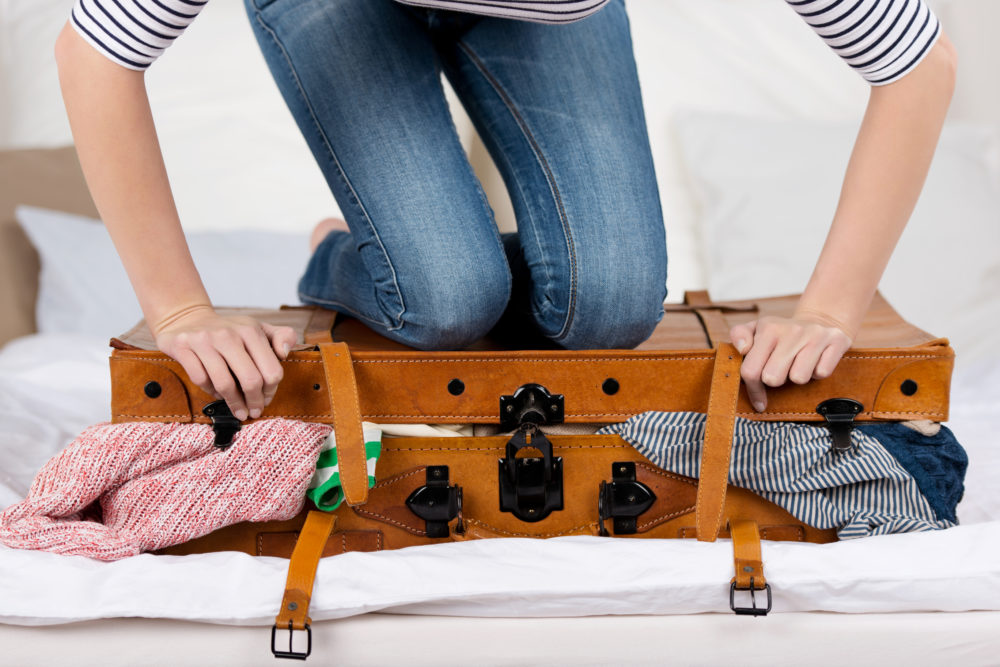When you pack for a vacation you probably load up on SPF 15 (or higher), hand sanitizer (pocket bac, floating pac), tissues, and ibuprofen. That’s a good start, but you are nowhere near as prepared as many physicians who plan vacations. If you really want to be ready for any eventuality on vacation, there are 25 items that you need to take with you. That may sound like a ridiculous number, but ask yourself this; even though you are a skilled nurse or physician, would you know what to do if you lost a filling while vacationing in a foreign country?
1: Sinus pain: A travel size steam inhaler cup will open airways and reduce pain.
2: Blocked ears: Nasal spray will open blocked ears and equalize the pressure in the ears with the pressure of an airplane cabin.
3: Insect bites: You might think it best to take a topical cream to address irritating insect bites, but antihistamines are even better. They stop itching by addressing the source.
4: Sunburn: If you have properly and regularly applied sunscreen (ahem) you shouldn’t have this problem. But if you do get a sunburn, aloe vera gel is the most soothing thing you can apply to your skin. It quickly moisturizes the burn and reduces pain.
5 & 6: Cuts: Take your favorite antiseptic cream and bandaids for cuts. Rub the cream on the cut and then cover it with band-aids to keep the cream in place and the cut clean.
7: Blisters: If those beautiful new vacation sandals are giving you blisters, you will be thankful you brought along blister plasters, also called gel cushions or blister bandages. They pad the blister while treating it with medication.
8 & 9: Burns: A topical anesthetic cream can treat burns of most any type – temporarily. Whether you have burned your hand on a shish kebab stick or have a severe sunburn, use the cream right away and then seek medical attention. Some doctors take a roll of cling film with them too in order to keep the burn sterile while dressing it.
10: Motion Sickness: According to vacationing doctors, motion sickness medications with cinnarizine are most effective. They address the motion sickness and are also antihistamines, which means you can also use them to combat irritating bug bites.
11: Eye Problems: Eyes can easily dry out in the airplane. If you aren’t drinking enough fluids while traveling, dehydration will affect the eyes. Eye drops are a good solution in a very small package and will help to prevent “pink eye” as well.
12: Diarrhea: Is there anything worse? Depending on where you are traveling, water and/or food can give you diarrhea and it will put a serious damper on your fun. Make sure to take Imodium A-D or another anti-diarrheal drug with you. Drink lots of water while you are taking it.
13 & 14: Sprains: Whether you slip on a curb or fall off your summer wedges, sprains and strains are going to severely limit your ability to tour your vacation spot. Ace bandages will help to strengthen the sprain and stabilize the ankle and foot until it begins to heal. Taking ibuprofen helps to reduce the inflammation.
15: Jet Lag: This evil time lapse phenomenon can steal part or all of a day (several days for some) depending upon the direction in which you are traveling. Melatonin tablets will help. You can find them in any drug store.
16: Losing a filling: Now that would be ugly. Dental repair kits are easy to find and will repair loose fillings and caps.
17 & 18: Toothache: A toothache is right up there with diarrhea in the “ability to ruin a vacation” category. Clove oil reduces inflammation and pain in the tooth. You simply dab it on a cotton ball, put it on the tooth and bite down. It’s an old-fashioned remedy that still works wonders.
19: Hangovers: Some would say a hangover is proof of a great vacation. That may be true, but you can lose a day of vacation to it nonetheless. Ibuprofen will reduce inflammation and pain. Some doctors say it also causes fluid retention which helps to fight the dehydration that comes with drinking alcohol.
20: Rashes: Buy your favorite brand of hydrocortisone or anti-inflammatory steroid cream to treat rashes. It’s fairly easy to pick up a rash while on vacation whether it’s from contact with poison ivy or an allergy to chlorinated pool water.
21 & 22: Deep wounds: You’re going to want to seek medical help for these, but if you can cover them quickly it will help to prevent infection. Skin closures can help to close the edges of a cut so that you can get to a doctor. You will also need to take sterile dressings.
23: Emergencies: Customize a small emergency kit to contain any medical equipment you may want to treat emergencies if you are in an area where you don’t trust, the hygiene of the local medical equipment. You can likely make room in a first aid kit to contain some of the items on this list.
24 & 25: For everything else: Instant ice packs and a travel pack of cleansing cloths will keep you clean and comfortable should you suffer aches, pains, and inflammation.
This may seem like a lot of medical supplies to take on vacation but most of them will fit in a medical kit in your carry-on bag. Besides, isn’t protecting your vacation worth a few extra supplies? Sunning yourself on an exotic beach or touring a far corner of the world isn’t going to be enjoyable if you find yourself running for the nearest unknown (and maybe a little bit scary) clinic.




